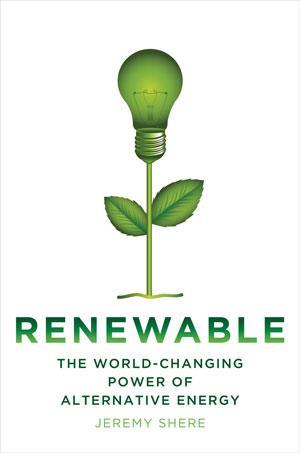Jeremy Shere
St Martin’s Press
2013 | 304pp | £16.05
ISBN 9780312643751

From the perspective of someone who knows little about energy systems, Jeremy Shere sets out to survey where energy will come from in the future and how that will impact life. His introduction sketches one view of that future and, without being prescriptive, he asks if clear paths emerge from the past through today and into such a future. The work comprises five main sections covering transport fuel, solar, wind, earth and water.
The writing style is engaging and the book delivers a mixture of the historical evolution of renewables, as Shere visits a range of R&D and renewables facilities across his native land, the US, along with Shere’s thoughts on what he finds and learns on his journey. These road trips litter the story with quotes from those directly involved in developing or using the technologies. The quotes are of course subjective but that is to be expected and is not unreasonable.
While there are many references to developments outside of the the US, the book’s mainly US focus is clear from the outset. But this is not an issue for the non-US reader; the historical and anecdotal elements are interesting, and the reader is able to reflect on the various parallels and differences elsewhere.
Among other things, I wasn’t aware of the battle between Thomas Edison, George Westinghouse and Nikolai Tesla that eventually established AC transmission as the norm (as they tried to carry hydro power from Niagra over great distances). And my own homeland, Scotland, gets a good write-up on wave power innovation.
Given the dash-for-gas in the US, I wonder if Shere isn’t a touch more optimistic than he should be on the current US renewables situation. That said, he takes the long view, using history to demonstrate that good ideas don’t go away and that if we can’t quite capture enough power from the Sun, wind or tide to satisfy us today, there is every chance that we will do so tomorrow.
For the general reader, Renewable is a useful introduction to and survey of the main topic areas and is capable of encouraging further exploration. I’d say the author has achieved his goal. And even sector specialists (and students), may find something new in the historical material and off-specialism topics making Renewable a good light read.
Purchase Renewable from Amazon.co.uk












No comments yet